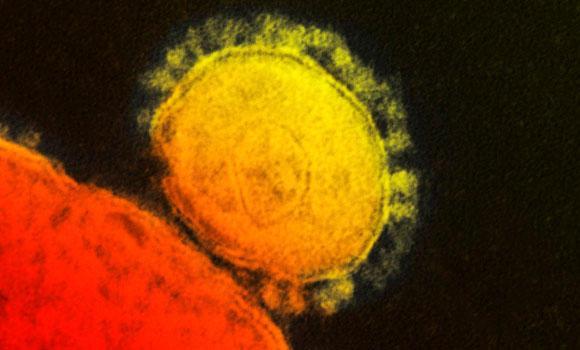
With KSA help, scientists take fresh steps to defeat MERS
Genetic sequence data on two of the deadliest yet most poorly understood viruses are to be made available to researchers worldwide in real time as scientists seek to speed up understanding of Ebola and MERS.
The project, led by British scientists with West African and Saudi collaboration, hopes to encourage laboratories around the world to use the live data — updated as new cases emerge — to find new ways to diagnose and treat the killer diseases, and ideally, ultimately, prevent them.
“The collective expertise of the world’s infectious disease experts is more powerful than any single lab, and the best way of tapping into this...is to make data freely available as soon as possible,” said Jeremy Farrar, director of the Wellcome Trust global health charity which is funding the work.
The gene sequences will be posted on the website virological.org.
Paul Kellam, a professor at Britain’s Sanger Institute, said mapping the gene structure, or sequencing the genome, of a virus can tell scientists a lot about how it is spreading and changing, and help in the search for better ways to diagnose, treat and prevent infections.
Kellam said Saudi authorities are committed to sharing viral data widely and immediately, keen to enlist the help of international scientists in controlling MERS.
The project, led by British scientists with West African and Saudi collaboration, hopes to encourage laboratories around the world to use the live data — updated as new cases emerge — to find new ways to diagnose and treat the killer diseases, and ideally, ultimately, prevent them.
“The collective expertise of the world’s infectious disease experts is more powerful than any single lab, and the best way of tapping into this...is to make data freely available as soon as possible,” said Jeremy Farrar, director of the Wellcome Trust global health charity which is funding the work.
The gene sequences will be posted on the website virological.org.
Paul Kellam, a professor at Britain’s Sanger Institute, said mapping the gene structure, or sequencing the genome, of a virus can tell scientists a lot about how it is spreading and changing, and help in the search for better ways to diagnose, treat and prevent infections.
Kellam said Saudi authorities are committed to sharing viral data widely and immediately, keen to enlist the help of international scientists in controlling MERS.
Share:
ADD TO EYE OF Riyadh
MOST POPULAR
Ferrero Group Launches the First-Ever "Kinder Joy of Moving" Program in the UAE to Promote Active Lifestyles for Children
Thursday 14 November, 2024 10:57Sharjah hosts UAE-Thailand Business Forum to enhance investment prospects, establish new strategic partnerships
Thursday 14 November, 2024 10:03UAE demonstrates its leadership in spearheading climate action: Al Dahak
Thursday 14 November, 2024 10:07HONOR Magic V3 Ranked Among TIME's "Best Inventions of 2024"
Thursday 14 November, 2024 10:31ADNOC L&S Q3 net profit up 18% YoY to AED643 million
Thursday 14 November, 2024 10:00 ×



























